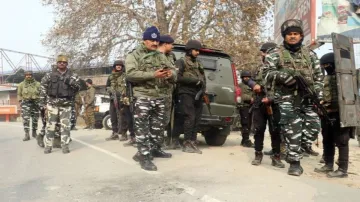The Armed Forces Special Powers Act (AFSPA), 1958, has been removed from most parts of the northeast, except a few districts and some police station areas, Parliament was informed on Tuesday. Notably, the act gives sweeping powers to the armed forces operating in disturbed areas to search, arrest and open fire if they deem it necessary. In a written reply to a question in the Lok Sabha, Union Minister of State for Home Nityanand Rai said there has been a considerable reduction in the number of "disturbed areas" under the AFSPA and the law has been withdrawn completely from Tripura (from May 27, 2015) and Meghalaya (April 1, 2018).
The AFSPA has also been withdrawn from all districts except four in Assam, Rai added. The minister further said the AFSPA has been withdrawn gradually in Arunachal Pradesh and it is currently applicable only in three police station areas in Namsai district and three other districts -- Tirap, Changlang and Longding.
What minister said in his reply?
In Manipur, the law has been withdrawn from 19 police station areas in seven districts and in Nagaland, it has been withdrawn partly and is now applicable only in eight districts and 21 police station areas in five other districts, the minister said. "The security situation in the northeastern states has seen significant improvement since 2014. Compared to 2014, there has been 71 per cent reduction in insurgency incidents, 60 per cent decrease in the number of security forces personnel deaths and 82 per cent decrease in civilian fatalities in 2023," Rai added in his reply.
What is AFSPA?
It should be noted here that the AFSPA empowers security forces to arrest a person without a warrant, enter or search premises without a warrant, and perform other actions. It's an act to enable certain special powers to be conferred upon members of the armed forces in disturbed areas in the States of Arunachal Pradesh, Assam, Manipur, Meghalaya, Mizoram, Nagaland and Tripura.
(With inputs from PTI)
ALSO READ: Centre extends AFSPA in eights districts of Nagaland for six months | Know why
